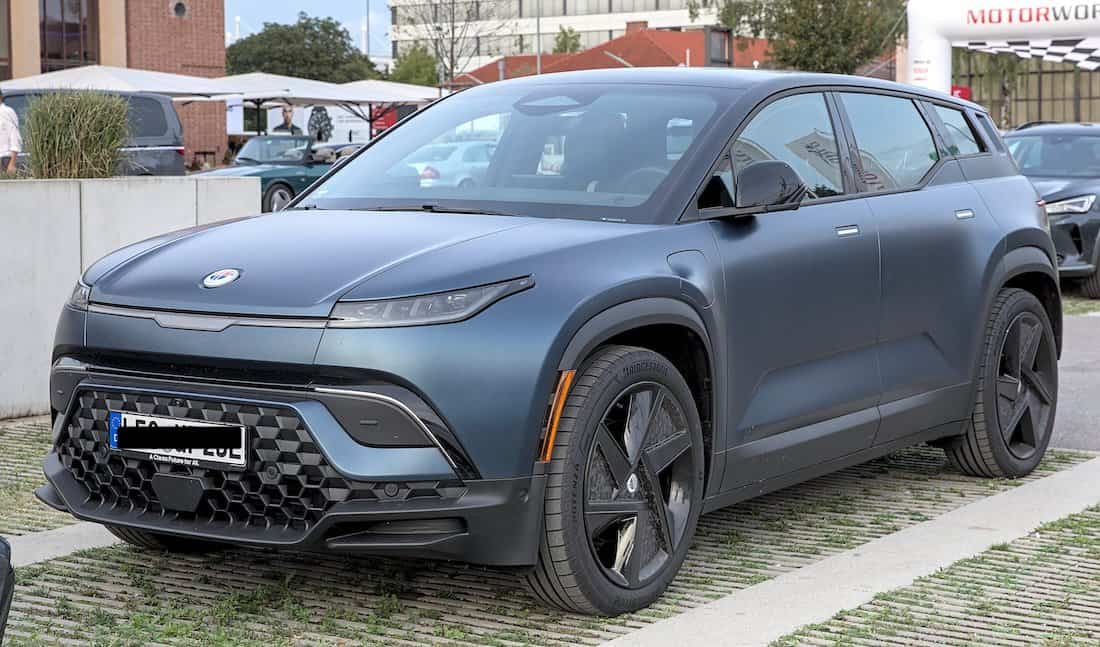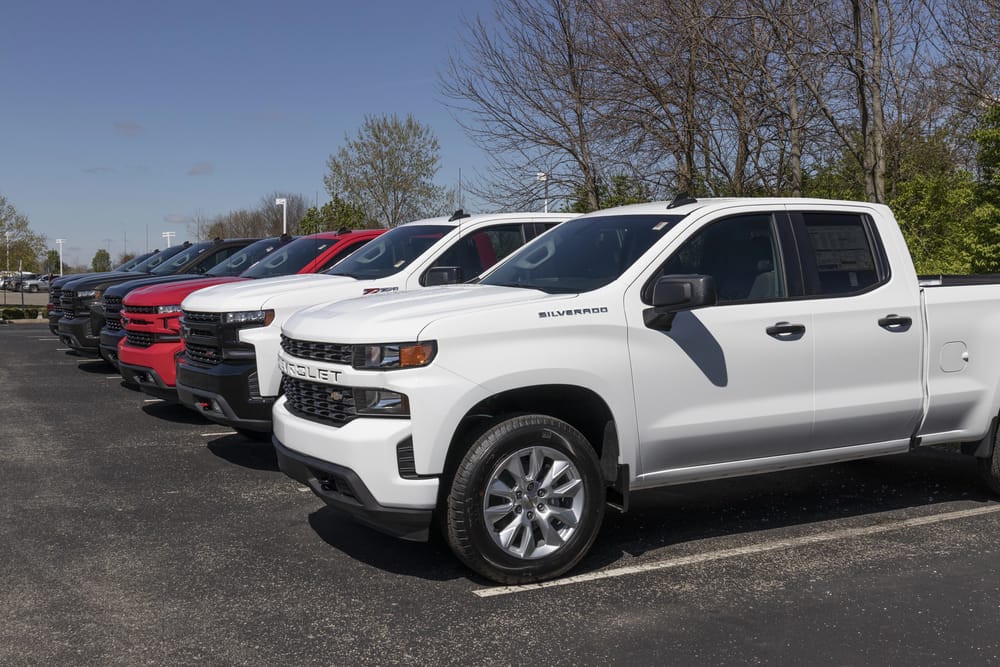Current or former owners of 2014-2018 Nissan Rogue, 2015-2018 Nissan Pathfinder, or 2015-2018 Infiniti QX60 vehicles need to pay close attention to their legal rights. On March 23, 2022, a federal court in Tennessee finally approved a class action settlement involving an alleged CVT transmission defect.
Visit the official settlement website.
The deadline to opt-out of that settlement was February 22, 2022. This deadline has now passed, which means if there is no appeal of the Court’s order you may not have the ability to bring an individual lawsuit over these issues. The deadline to submit claims as part of the settlement is March 22, 2022, or 30 days after a qualifying transmission repair, whichever is later.
Nissan Rogue model years 2014-18, Nissan Pathfinder model years 2015-18, and Infiniti QX60 model years 2015-2018 vehicles allegedly contain one or more design or manufacturing defects that can cause their continuously variable transmission to malfunction (the CVT Defect).
Numerous owners have reported a significant delay in their vehicles’ response while attempting to accelerate from a stop or while attempting to merge into freeway traffic or pass another car when experiencing the CVT Defect. Additionally, reports of the engine revving typically accompany this delay in response while the driver depresses the gas pedal with little to no increase in vehicle speed.
Vehicle owners have also experienced and reported stalling, jerking, lurching, juddering, or shaking while operating their vehicles, as well as premature transmission failure when experiencing the CVT Defect.
If you want more information about the class action settlement and its status, please note we are not the settlement administrator or counsel in the Stringer action. You can use the following link (https://www.roguepathfinderqx60cvtsettlement.com/) to contact counsel for the class or contact the settlement administrator.
PLEASE NOTE – the deadline to opt-out of this settlement was February 22, 2022. If you chose to opt-out, please contact us at 1-855-678-6881 for more information as to your legal rights and options.
Class Action lawsuits Over the CVT Transmission Defects
 Stringer et al. v. Nissan of North America, Inc., et al., Case No. 3:21-cv-00099, was filed in the United States District Court for the Middle District of Tennessee on February 5, 2021 and has been consolidated with four other actions. The parties filed a consolidated amended complaint on July 15, 2021.
Stringer et al. v. Nissan of North America, Inc., et al., Case No. 3:21-cv-00099, was filed in the United States District Court for the Middle District of Tennessee on February 5, 2021 and has been consolidated with four other actions. The parties filed a consolidated amended complaint on July 15, 2021.
The plaintiffs filed this Complaint on behalf of a class of owners and lessees of certain 2014-18 Model Year Nissan Rogue and 2015-18 Model Year Pathfinder or Infiniti QX60 vehicles.
The Stringer class action lawsuit was settled.
On March 23, 2022, a federal court in Tennessee finally approved a class action settlement involving an alleged CVT transmission defect. The deadline to opt-out of that settlement was February 22, 2022. This deadline has now passed, which means if there is no appeal of the Court’s order, you may not have the ability to bring an individual lawsuit over these issues. The deadline to submit claims as part of the settlement is March 22, 2022, or 30 days after a qualifying transmission repair, whichever is later. If you chose to opt out of the settlement, please contact us for more information as to your options by calling 1-855-678-6881.
Status of the Class Action Litigation
In Stringer et al. v. Nissan of North America, Inc., the court granted consolidation and appointed interim class counsel on April 19, 2021.
The parties stipulated to a motion for Preliminary Approval of Class Action Settlement that was filed on September 7, 2021. On October 13, 2021, the court preliminarily approved a settlement of these claims. According to the official class action settlement website, please note the following important dates from the settlement website:
- Opt-Out/Objection Deadline: February 22, 2022
- Final Approval Hearing: March 21, 2022
- Claims Deadline: March 22, 2022, or 30 days after a qualifying transmission repair, whichever is later
On March 23, 2022, a federal court in Tennessee finally approved a class action settlement involving an alleged CVT transmission defect. The deadline to opt-out of that settlement was February 22, 2022. This deadline has now passed, which means if there is no appeal of the Court’s order you may not have the ability to bring an individual lawsuit over these issues. The deadline to submit claims as part of the settlement is March 22, 2022, or 30 days after a qualifying transmission repair, whichever is later.
If there are no appeals from the Court’s order, all members of the approved Settlement Class that did not submit a timely and valid written request for exclusion from the class will be bound by the releases in the Settlement Agreement and other terms and conditions set forth in that Agreement, as well as all proceedings, orders, and judgments in that lawsuit. Class Members may exclude themselves from the settlement or object to it, but they may not do both.
Under the proposed settlement, Nissan will have to pay reimbursements for certain repairs, offer a new vehicle limited warranty extension of 24 months or 24,000 miles, whichever happens first, and provide $1,000 vouchers for qualified Class Members that you can use towards the purchase of a new Nissan or Infiniti vehicle, plus attorneys’ fees and administrative costs that will be paid separately by Nissan.
Class Action Settlement Options
If the class is certified by the court in a class-action lawsuit either for litigation or for settlement purposes, the lawyers who bring the class action represent you.
If, as happened here, the case settles and the court preliminarily approves the class action settlement, you should have received a class notice describing your options.
Those options are: (a) do nothing, in which case you may get nothing but be bound by the settlement, (b) submit a claim form if requested and get whatever relief is made available, and the settlement also binds you, or (c) opt-out and pursue your own claims, in which case you are not bound by the settlement but cannot participate in any of the relief that is being offered to class members.
A class action settlement may provide significant benefits for many people and does not require much effort to participate. It also comes with no risk, as the claims have been resolved.
But for others, particularly where they may have had multiple repairs to or complaints about the CVT transmission, opting out and pursuing individual claims may provide them an opportunity to receive a better recovery in a shorter period of time, but with no guarantee, they will get anything in the settlement.
On March 23, 2022, a federal court in Tennessee finally approved a class action settlement involving an alleged CVT transmission defect. The deadline to opt-out of that settlement was February 22, 2022. This deadline has now passed, which means if there is no appeal of the Court’s order you may not have the ability to bring an individual lawsuit over these issues. The deadline to submit claims as part of the settlement is March 22, 2022, or 30 days after a qualifying transmission repair, whichever is later.
If you chose to opt out of the settlement, please call 1-855-678-6881 for more information as to your legal options.
Nissan CVT Transmission Settlement FAQ
What is the name and case number of the class action lawsuit filed? When and where was the class action lawsuit filed?
Stringer et al. v. Nissan of North America, Inc., et al., Case No. 3:21-cv-00099, was filed in the United States District Court for the Middle District of Tennessee on February 5, 2021 and has been consolidated with four other actions. The plaintiffs filed a consolidated amended complaint on July 15, 2021.
What do Plaintiffs allege in the class action lawsuits?
 The plaintiffs allege that certain 2014-18 Model Year Nissan Rogue and 2015-18 Model Year Pathfinder or Infiniti QX60 vehicles contain one or more design or manufacturing defects that can cause their continuously variable transmission to malfunction.
The plaintiffs allege that certain 2014-18 Model Year Nissan Rogue and 2015-18 Model Year Pathfinder or Infiniti QX60 vehicles contain one or more design or manufacturing defects that can cause their continuously variable transmission to malfunction.
Numerous owners have reported a significant delay in their vehicles’ response while attempting to accelerate from a stop or while attempting to merge into freeway traffic or pass another vehicle. Reports of the engine revving typically accompany this delay in response while the driver depresses the gas pedal without little to no increase in vehicle speed. Vehicle owners have also experienced and reported stalling, jerking, lurching, juddering, or shaking while operating their vehicles, as well as premature transmission failure.
What are the affected vehicle models identified in the class action lawsuits?
Plaintiffs brought stringer v. Nissan and any related actions on behalf of two subclasses:
- Subclass A: All individuals who purchased or leased any 2014-2018 Model Year Nissan Rogue vehicle equipped with a CVT in the United States or its Territories.
- Subclass B: All individuals who purchased or leased any 2015-2018 Model Year Nissan Pathfinder vehicle or 2015-2018 Model Year Infiniti QX60 vehicle equipped with a CVT in the United States or its Territories.
How many vehicles are impacted by the CVT transmission defect?
According to publicly available data, the total number of Class Vehicles sold is approximately 2. 1 million vehicles.
What do the class action lawsuits claim is the cause of the defect in the vehicles?
According to the Plaintiffs, Nissan became aware of the CVT Defect through sources not available to the Plaintiffs and Class Members, including, but not limited to, pre-production testing, pre-production design failure mode, and analysis data, production design failure mode and analysis data, early consumer complaints made exclusively to Nissan’s network of dealers and directly to Nissan, aggregate warranty data compiled from Nissan’s network of dealers, testing conducted by Nissan in response to consumer complaints, and repair order and parts data received by Nissan from Nissan’s network of dealers.
For over a decade, Nissan’s CVT transmission has been plagued with the same or similar recurrent problems (i.e., hesitation, shaking, juddering, premature failure, etc.).
Nissan also reported that “in the unlikely event that your vehicle’s transmission should need repair beyond the extended warranty period, we are working to decrease the cost of repair.” Nissan continued to experience such trouble with its CVTs that in December 2013, Nissan’s then-CEO, Carlos Ghosn, announced that Nissan would increase its oversight of CVT supplier JATCO, Ltd. Nissan further explained that it was necessary to increase its oversight of JATCO because ongoing customer service issues had begun to cut into Nissan’s profits.
Technical Service Bulletins (TSBs) issued by Nissan to its dealers and other remedial actions it has taken concerning the Class Vehicles and other vehicles with the same or substantially similar CVT evidence of Nissan’s knowledge of the CVT Defect.
How does the CVT transmission defect violate the vehicle’s warranty?
Nissan provides purchasers and lessees with an express warranty, including a “New Vehicle Limited Warranty Powertrain Coverage.” A new vehicle warranty covers Nissan vehicles, and almost all come with a 3-Year / 36,000-mile limited warranty (whichever occurs first) and a 5-year / 60,000-mile limited warranty for powertrain components (whichever occurs first). The warranty covers repairs and adjustments needed to correct defects in materials or workmanship of any part supplied by Nissan.
Has Nissan offered consumers anything to resolve the CVT transmission issue?
On March 23, 2022, a federal court in Tennessee finally approved a class action settlement involving an alleged CVT transmission defect. The deadline to opt-out of that settlement was February 22, 2022. This deadline has now passed, which means if there is no appeal of the Court’s order you may not have the ability to bring an individual lawsuit over these issues. The deadline to submit claims as part of the settlement is March 22, 2022, or 30 days after a qualifying transmission repair, whichever is later.
If you chose to opt out of the settlement, please contact us at 1-855-678-6881 for more information as to your legal options.
Under the settlement, Nissan will have to pay reimbursements for certain repairs, offer a new vehicle limited warranty extension of 24 months or 24,000 miles, whichever happens first, and provide $1,000 vouchers for qualified Class Members that can be used towards the purchase of a new Nissan or Infiniti vehicle, plus attorneys’ fees and administrative costs that will be paid separately by Nissan.
If there is no appeal of the Court’s order, all class members that did not submit a timely and valid written request for exclusion from the Settlement Class will be bound by the releases in the Settlement Agreement and other terms and conditions set forth herein and all proceedings, orders, and judgments in that lawsuit.
Class Members may exclude themselves from the settlement or object to it, but they may not do both. The notice you receive will list the deadlines for doing so.
Are cars with the CVT transmission issue Unsafe?
According to the Plaintiffs, the CVT Defect has been documented to occur without warning during vehicle operation and poses an extreme and unreasonable safety hazard to drivers, passengers, and pedestrians. These safety hazards include being unable to maintain the proper speed to integrate seamlessly into the traffic flow, especially on highways or freeways, putting drivers at risk of being rear-ended or otherwise causing an accident unless they pull off the road.
What is the status of the CVT transmission class action lawsuits?
In Stringer et al. v. Nissan of North America, Inc., the court granted consolidation and appointed interim class counsel on April 19, 2021.
The parties stipulated to a motion for Preliminary Approval of Class Action Settlement that was filed on September 7, 2021. On October 13, 2021, the court preliminarily approved a settlement of these claims (as amended on December 7, 2021). According to the official class action settlement website, please note the following important dates from the settlement website:
- Opt-Out/Objection Deadline: February 22, 2022
- Final Approval Hearing: March 21, 2022
- Claims Deadline: March 22, 2022, or 30 days after a qualifying transmission repair, whichever is later
On March 23, 2022, a federal court in Tennessee finally approved a class action settlement involving an alleged CVT transmission defect. The deadline to opt-out of that settlement was February 22, 2022. This deadline has now passed, which means if there is no appeal of the Court’s order you may not have the ability to bring an individual lawsuit over these issues. If you chose to opt out of the settlement, please contact us for more information as to your options. If there is no appeal of that order, all class members that did not submit a timely and valid written request for exclusion from the Settlement Class will be bound by the releases in the Settlement Agreement and other terms and conditions set forth herein, and all proceedings, orders, and judgments in that lawsuit. Class Members may exclude themselves from the settlement or object to it, but they may not do both.
The deadline to submit claims as part of the settlement is March 22, 2022, or 30 days after a qualifying transmission repair, whichever is later.
Have the CVT transmission class action lawsuits been settled?
 The parties stipulated to a motion for Preliminary Approval of Class Action Settlement that was filed on September 7, 2021. On October 13, 2021, the court preliminarily approved a settlement of these claims. Visit the official settlement website.
The parties stipulated to a motion for Preliminary Approval of Class Action Settlement that was filed on September 7, 2021. On October 13, 2021, the court preliminarily approved a settlement of these claims. Visit the official settlement website.
Under the proposed settlement, Nissan will have to pay reimbursements for certain repairs, offer a new vehicle limited warranty extension of 24 months or 24,000 miles, whichever happens first, and provide $1,000 vouchers for qualified Class Members that can be used towards the purchase of a new Nissan or Infiniti vehicle, plus attorneys’ fees and administrative costs that will be paid separately by Nissan.
On March 23, 2022, a federal court in Tennessee finally approved a class action settlement involving an alleged CVT transmission defect. The deadline to opt-out of that settlement was February 22, 2022. This deadline has now passed, which means if there is no appeal of the Court’s order you may not have the ability to bring an individual lawsuit over these issues. If you chose to opt out of the settlement, please contact us at 1-855-678-6881 for more information as to your options.
As that settlement was finally approved, and if there are no appeals of the Court’s order, all class members that did not submit a timely and valid written request for exclusion from the Settlement Class will be bound by the Releases in the Settlement Agreement and other terms and conditions set forth herein and all proceedings, orders, and judgments in that lawsuit. Class Members may exclude themselves from the settlement or object to it, but they may not do both.
Is there anything I need to do at this time? When do I need to decide what to do?
On March 23, 2022, a federal court in Tennessee finally approved the class action settlement involving an alleged CVT transmission defect. The deadline to opt-out of that settlement was February 22, 2022. This deadline has now passed, which means if there is no appeal of the Court’s order you may not have the ability to bring an individual lawsuit over these issues. If you chose to opt out of the settlement, please contact us for more information as to your options.
What Happens If I Don’t Opt Out of the Class Action Lawsuit or Settlement?
It depends on how the settlement is structured, but generally, you will be bound by its terms if you do not opt out of the settlement. You will receive any benefits offered in the settlement, either automatically or by submitting a claim form. However, if you did not timely opt out of the settlement, you will not be able to bring any individual claim for damages caused by the defect, except possibly for personal injury claims.
As that settlement was finally approved, if there are no appeals from that order, all class members that have not submitted a timely and valid written request for exclusion from the Settlement Class will be bound by the releases in the Settlement Agreement and other terms and conditions set forth herein and all proceedings, orders, and judgments in that lawsuit.
Why Should I Opt-Out of Any Certified Class or Settlement?
The deadline to opt-out of the Stringer v. Nissan settlement was February 22, 2022. If you chose to opt out, please contact us at 1-855-678-6881 for more information. On March 23, 2022, a federal court in Tennessee finally approved a class action settlement involving an alleged CVT transmission defect. The deadline to opt-out of that settlement was February 22, 2022. This deadline has now passed, which means if there is no appeal of the Court’s order you may not have the ability to bring an individual lawsuit over these issues.
For many people, a class action provides them some benefits without the need to spend any money or do much other than complete a claim form. Under the proposed settlement, Nissan will have to pay reimbursements for certain repairs, offer a new vehicle limited warranty extension of 24 months or 24,000 miles, whichever happens first, and provide $1,000 vouchers for qualified Class Members that can be used towards the purchase of a new Nissan or Infiniti vehicle, plus attorneys’ fees and administrative costs that will be paid separately by Nissan. Because the matter is settled, as long as the court approves the settlement and you file a claim, you will get the relief described in the class notice.
However, some people may qualify for a complete vehicle repurchase and a greater refund. Some people may decide that the relief offered as part of the class action settlement is not adequate, that they do not want to wait to get relief, or that they think they will get more if they do not participate in the class action settlement. This depends on various factors, such as how old your car is, whether you had significant transmission problems with your vehicle, had multiple repairs attempted, whether you still own the car, and is it still under warranty, and where you live.
Depending on the answers to those questions, while there is no guarantee you will receive any recovery, if you opt-out, you may have the opportunity to receive significant relief, including a vehicle repurchase and penalties.
What is the Song Beverly Warranty Act?
 Song-Beverly, California Civil Code §1793.2(d)(1), is a California state law that requires manufacturers to repair defects after a reasonable number of repair attempts. What is “reasonable” is not part of hard and fast rules – safety defects should be fixed immediately, for example. The defects have to be important, and must “substantially impair the vehicle’s use, value, OR safety.” Civil Code §1793.22(e)(2). Under Civil Code §1793.2(d)(1), manufacturers are required to promptly offer repurchase or replacement of the vehicle they cannot fix in a reasonable time frame.
Song-Beverly, California Civil Code §1793.2(d)(1), is a California state law that requires manufacturers to repair defects after a reasonable number of repair attempts. What is “reasonable” is not part of hard and fast rules – safety defects should be fixed immediately, for example. The defects have to be important, and must “substantially impair the vehicle’s use, value, OR safety.” Civil Code §1793.22(e)(2). Under Civil Code §1793.2(d)(1), manufacturers are required to promptly offer repurchase or replacement of the vehicle they cannot fix in a reasonable time frame.
In addition, Civil Code §1794(c) and §1793.2(d) provide that customers are entitled to a civil penalty in an amount up to two times actual damages if manufacturers acted “willfully” (meaning knowingly, but not necessarily with wrongful or malicious intent) in ignoring or failing its obligation under Song-Beverly.
Finally, under Civil Code §1794(d), manufacturers must pay the plaintiff’s attorney’s fees and costs as part of the settlement. The Song-Beverly Act is a pro-consumer fee-shifting statute.
What Relief Could I Get If I Bring an Individual Lemon Law Lawsuit Over the Defect?
California’s lemon law and other state and federal laws may force Nissan to “buy the vehicle back,” or provide other important compensation.
Under California’s lemon law, qualifying “lemons” must be bought back, which can mean a large cash refund and payoff of your loan or lease. The refund could be as much as everything you paid for the vehicle and everything you owe: monthly payments, down payments, tax, finance charges, license, registration, etc. Depending on the circumstances, you could even qualify for two times your money back.
What Nissan would have to buy it for has nothing to do with its current worth. There is a formula in the law that starts with you getting all your money back and then taking certain deductions and exclusions away from your payment. Those refunds and exclusions are challenging to understand and can be fought against by knowledgeable consumer attorneys.
What are my options if I opted out of the class action settlement?
You might have a lemon law claim for damages if you opted out of the class action settlement. For a free consultation, call 1-855-678-6881. One of our team members can explain your rights. You must have chosen to opt-out of the class action settlement for his option.



